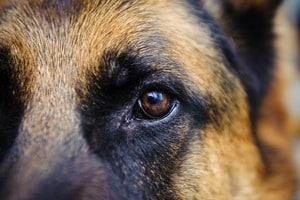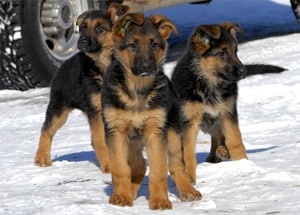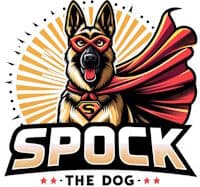Many people who want dogs overlook the most important question – “Why?” Yet the answer colours all other considerations. Getting a dog is not like getting a new couch: you are not buying a possession but inviting a living being into your family. The new arrangement should be an improvement for everyone, including the dog, so be aware of how your personality affects the dynamics.
If you are hoping for a jogging partner, you’ll want a very different dog from one you might choose if you want a fearsome watchdog, or a docile companion in your retirement. If you have an aversion to pet hair, you’ll want a low-shedding dog. (And if you have an aversion to cleaning up dog poop and pee, you probably shouldn’t really get a dog at all, because inevitably you will have to at some time.)

Only once you know how the dog might fit into your family life should you begin comparing breeds, weighing their characteristics in light of your preferences. When you get to that point, here are some considerations:
Size
A dog’s size plays a major role in how well he fits with your family. Larger breeds not only take up more physical space than smaller dogs, they also eat more, and their veterinary drugs and services cost more. They need space: if you live in an apartment, do not consider a large dog unless you are prepared to walk him every day and let him run several times a week to keep him healthy. Do you have a family? Some large dogs are great with kids, but even those that are can topple them in their exuberance, just innocently walking by. (This is also something to think about if a family member is frail or elderly people; likewise, small, active dogs can easily trip both babies and elders).
Small dogs are more “portable,” and tend to live longer than the larger breeds. But they are also often more active, and need plenty of attention and exercise or they develop nasty habits out of boredom and frustration like chewing the furniture and barking. They rarely make good jogging partners, although some like being pushed in doggy strollers.
Temperament
It’s difficult to tell when you’re choosing a puppy exactly what his temperament might be. It’s best if you can “meet” the mother and father, too, to gauge how friendly, possessive, unruly, or overprotective they may be. If you are choosing from a litter of new pups, the safest choice will be one who is neither the most aggressive or the most shy among them.
While dogs are as individual as humans, certain temperaments are more prevalent among certain breeds. Terriers, for example, can be very energetic, curious dogs with a tendency to yap and nip, and can be hard to train, but they can also form tight bonds with their owners and be fiercely protective. Herding dogs (e.g., Collies, Shepherds) usually enjoy having other animals around, but without enough attention and exercise may resort to herding your cats and kids.
Working breeds (e.g., Saint Bernard, Akita, Rottweiler) tend to be loyal and affectionate to their owners, but can be intolerant of other animals and unfriendly to strangers. Overall it’s best to do your own comparison research on the internet, at the library, or by asking your veterinarian or a dog groomer.
Coat Characteristics
All dogs shed. Terriers shed very little, as do the Italian Greyhound, Irish Water Spaniel, Standard Poodle, Schnauzer, Maltese and Basenji, and many other dogs. It’s not just the coat length. Though long-haired dogs and those with double coats as a rule do shed more, many short- and medium-coated dogs such as the Labrador will drive compulsive house cleaners to distraction.
Regardless of the type of coat your dog has, he will require grooming at least several times a week, and some breeds require grooming even more often. Wire-coated terriers and poodles don’t shed much – people with dog allergies often find that they can live comfortably with these breeds – but require daily conscientious grooming to remove dead hair. Most long-haired dogs need to be brushed daily; if you don’t think you’ll have the time or the inclination to be brushing Boomer every night, you probably don’t want a Sheepdog or an Afghan.
Aptitude for Training

Much of training is time, patience, and persistence, and involves not just teaching a dog to do sit, stay and walk on a leash but also teaching the owners and other family members how to interact with the dog: when others use different commands for the same action, or allow behaviors that others don’t, training becomes very difficult. If you or someone in the family does not have the time to invest in training, you might consider getting an older dog that has already been properly trained. In general, the easiest dogs to train are Border Collies, German Shepherds, Gold Retrievers, Labradors, and Shetland Sheepdogs.
Energy Levels and Exercise Requirements
If your idea of a great time is running and playing outdoors and you are looking for a four-legged friend to catch a ball, do not choose a dog from one of the more sedate breeds who don’t need or want a lot of exercise such as a Brussels Griffon, French Bulldog, Manchester Terrier, Chihuahua, or Pekinese. But don’t confuse size with activity level: some smaller dogs, such as Jack Russell Terriers, are much more active than dogs many times their size. And any dog that doesn’t get the exercise and attention he craves will develop habits that you don’t appreciate such as chewing up your new leather couch or peeing in your expensive Italian pumps. (It won’t be his fault, either, but yours. It is not as though when he’s bored he can do a crossword puzzle or read a book.)
Some dogs are naturally high energy – Dalmatian, Weimaraner, Standard Poodle, Irish Setters – whereas others are more content to curl up with you and watch reality t.v.: Dachshund, Corgi, Basset Hound. If you spend all your time sitting at a computer, a Border Collie would make you both miserable in a very short while.
Once you can answer the crucial question of why you and your family (or family-to-be) want a dog in the first place, you will find selecting a breed and then choosing exactly the right dog for you a pleasure, not a problem.
